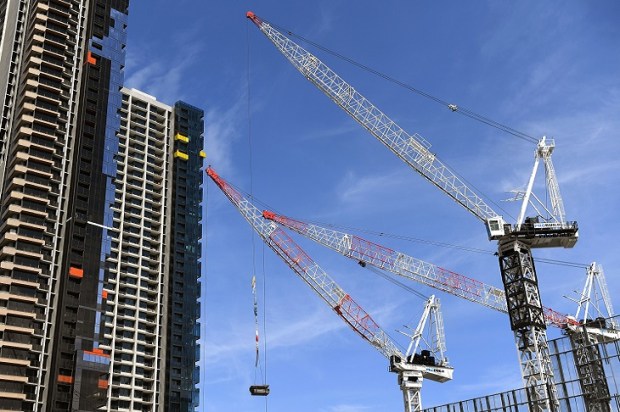It’s pretty easy to understand the politics behind the Albanese government’s shutting down the Australian Building and Construction Commission (ABCC). The government has to protect its institutional political and financial partners – the construction unions.
The ABCC has been far too effective in requiring the militantly aggressive construction unions to comply with the law. The unions have suffered massive fines from ABCC litigation, with courts increasingly loud and blunt in their criticism of the unions for giving the big finger to the law. Hence, the ABCC is to go.
But there’s one part of the ABCC operations that should be retained in one form or another, and it’s a process that cuts through the political divide. The ABCC runs a highly effective security of payment (SOP) program that requires big construction firms to pay small business subbies on time. It’s been operating since 2016 and it works.
For many decades, the small business people most ‘screwed over’ on payment terms have been the self-employed subcontractors in the building and construction sector. Over decades there has been a series of rolling crises.
Top-tier and other contractors delay payments to subcontractors, in effect, using the subcontractors as enforced part-financiers of their projects.
When an industry downturn occurs and large contractors go broke, the self-employed subbies at the bottom of the contract chain, individually and collectively, become major creditors. This invariably ends up with subbies going broke, losing their homes, and most frequently, then being unable to pay their assessed tax debts and more.
Almost invariably (again) the collective subbies’ bankruptcies result in political pressure for a ‘fix’. On many occasions, the losses will have occurred on government-funded projects. Governments have then established taxpayer-funded compensation funds and created security of payment regulations, vowing ‘this will never happen again’.
But give it a few years and the cycle repeats. Governments create security of payment regulations, trust accounts, and other like arrangements which have mostly been complex and expensive to administer. There has been a singular failure of these, most often because enforcement has been inadequate, lax, slow and a ‘box ticking’ exercise.
These failed government attempts have largely involved ‘closing the stable door after the horse has bolted’. The subbies still got screwed.
The ABCC’s security of payment processes have been quite different and effective. This is because the ABCC’s legislative power enables a significant ‘closing of the stable door before the horse bolts’. The key is that the ABCC’s powers rely on commercial triggers. Construction contractors risk losing access to Commonwealth government-funded contracts if they fail to pay their subcontractors on time. This commercial trigger works. And it works big time!
Construction companies are terrified of losing or missing out on government-funded construction work. The downside commercial risk of being banned from government work means that timely payments to subbies become a top priority.
Observations of the ABCC’s activity indicate that in its early years (2016-17), the ABCC discovered as part of its educational activities that construction firms with poor payment behaviour often suffered from inadequate administrative systems. The ABCC found strong willingness by firms to work with the ABCC to improve their systems.
Where disputes over work done or not done led to payment delays, it appears that generally such disputes were resolved comparatively quickly because of subbie payment obligations.
There have been only a few instances where the ABCC has been obliged to use its full enforcement powers against businesses who breached their subbie payment obligations.
The benefits of timely payments are clear, not just for construction small business subbies, but across the broader economy.
When payments are within agreed/required terms, better cash flow management operates throughout the construction sector, and the economy.
Better financial discipline operates through the sector when builders do not and cannot exploit subcontractors as forced financiers of their businesses.
When security of payment operates effectively and when major builders go broke, the loss exposure of subcontractors should be or is limited to the agreed and required terms of trade. That is, loss exposure should be limited to (say) 30 days of trading instead of (say) 90-120 days of trading where security of payment is not enforced.
The primary focus of effective security of payment processes is of course the construction subbies – that is, the self-employed people who actually work on the tools, physically doing the building – and the myriad of self-employed specialist construction consultants as well.
But there’s a bigger impact. Far too many construction giants have in part built their businesses on the back of forced finance provided by subcontractors. This may be ‘smart’ business for exploitative capitalist types, but it’s dodgy on any analysis. We can be certain that such firms will likewise readily screw over employees, clients, and consumers whenever they think they can pull it off.
Effective pay-on-time laws make for better commercial activity and a more honest and ethical economy on many levels.
Ken Phillips is Executive Director of Self-Employed Australia.

























